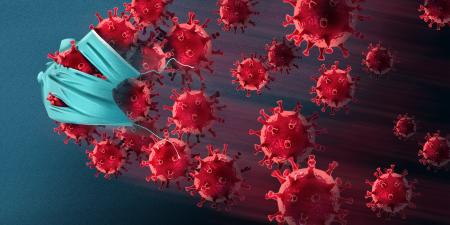Abstract
Global medical supply chain security is essential for the health care system to run efficiently and allow physicians to effectively treat patients. When the global medical supply chain fails, as was seen during the COVID-19 pandemic, physicians are put in the difficult position of not having enough resources and being required to put themselves at risk to provide care for sick patients. The AMA Code of Medical Ethics provides opinions giving guidance to physicians regarding this issue.
Introduction
The global medical supply chain is an extensive group of systems and processes that work together to ensure that health care supplies and resources are distributed to health care organizations and hospitals. Providing resources for patients is the main priority in medical supply chains. Three opinions in the AMA Code of Medical Ethics are relevant to the ethics of global medical supply chains: Opinion 11.1.3, “Allocating Limited Health Care Resources”1; Opinion 8.3, “Physicians’ Responsibilities in Disaster Response and Preparedness”2; and Opinion 1.1.6, “Quality.”3
Resource Allocation
In the midst of a global health crisis, allocation of resources is an essential factor in keeping the public safe. During the COVID-19 pandemic, drug shortages and restricted access to personal protective equipment (PPE) put patients and physicians at risk. Opinion 11.1.3 explains that physicians, both individually and collectively, “should advocate for policies and procedures that allocate scarce health care resources fairly among patients.”1 Opinion 11.1.3 further offers criteria physicians should follow when allocating limited health care resources: “Give first priority to those patients for whom treatment will avoid premature death or extremely poor outcomes, then to patients who will experience the greatest change in quality of life, when there are very substantial differences among patients who need access to the scarce resource(s).”1
Accomplishing these ethical duties in the context of a global pandemic requires physicians to adapt quickly to ever-changing circumstances and to evaluate patient needs in relation to the available resources. However, it is important to note the gravity of this responsibility and the implications of these decisions for certain communities. When global supply chains fail, resources become scarce, and doctors must allocate the limited resources in a way that most benefits patients and public health.
Disaster Response and Preparedness Duties
Physicians and other health care professionals were the frontline workers throughout the COVID-19 pandemic. Due to the lack of PPE and increased number of patients, physicians were placed in dangerous situations in order to care for patients. Opinion 8.3 explains that “[b]ecause of their commitment to care for the sick and injured, individual physicians have an obligation to provide urgent medical care during disasters. This obligation holds even in the face of greater than usual risks to physicians’ own safety, health, or life.”2
Opinion 8.3 goes on to explain what physicians should do collectively in disaster response and preparedness:
Provide medical expertise and work with others to develop public health policies that:
(i) are designed to improve the effectiveness and availability of medical services during a disaster;
(ii) are based on sound science;
(iii) are based on respect for patients.2
Physicians should also “[a]dvocate for and participate in ethically sound research to inform policy decisions” related to disaster preparedness.2 During a public health crisis, physicians are on the front line in disaster response. As the global medical supply chains collapsed, the brunt of the failure was felt by physicians and patients.4
Care Quality
Providing patients with quality care is of the utmost importance and becomes a prevalent concern when there is a global health crisis and health care systems are overwhelmed. Opinion 1.1.6 specifies that “[i]ndividually and collectively, physicians should actively engage in efforts to improve the quality of health care.”3 Physicians do so by:
(a) Keeping current with best care practices and maintaining professional competence.
(b) Holding themselves accountable to patients, families, and fellow health care professionals for communicating effectively and coordinating care appropriately.
(c) Using new technologies and innovations that have been demonstrated to improve patient outcomes and experience of care, in keeping with ethics guidance on innovation in clinical practice and stewardship of health care resources.
(d) Monitoring the quality of care they deliver as individual practitioners – eg, through personal case review and critical self-reflection, peer review, and use of other quality improvement tools.3
Opinion 1.1.6 is relevant in the context of global supply chains, as global medical supply chain security is essential to patient safety. Supply chains give physicians the resources they need to provide the highest quality care to patients. Specifically, in times of resource scarcity, “keeping current with best care practices”3 could be based on what is the best care practice during that time, with the resources available. Without secure supply chains in place, there is a high likelihood of failure, especially during public health crises.
References
-
American Medical Association. Opinion 11.1.3 Allocating limited health care resources. Code of Medical Ethics. Accessed June 20, 2023. https://code-medical-ethics.ama-assn.org/ethics-opinions/allocating-limited-health-care-resources
-
American Medical Association. Opinion 8.3 Physicians’ responsibilities in disaster response and preparedness. Code of Medical Ethics. Accessed June 20, 2023. https://code-medical-ethics.ama-assn.org/ethics-opinions/physicians-responsibilities-disaster-response-preparedness
-
American Medical Association. Opinion 1.1.6 Quality. Code of Medical Ethics. Accessed June 20, 2023. https://code-medical-ethics.ama-assn.org/ethics-opinions/quality
-
Shortage of personal protective equipment endangering health workers worldwide. World Health Organization. March 3, 2020. Accessed November 4, 2023. https://www.who.int/news/item/03-03-2020-shortage-of-personal-protective-equipment-endangering-health-workers-worldwide



